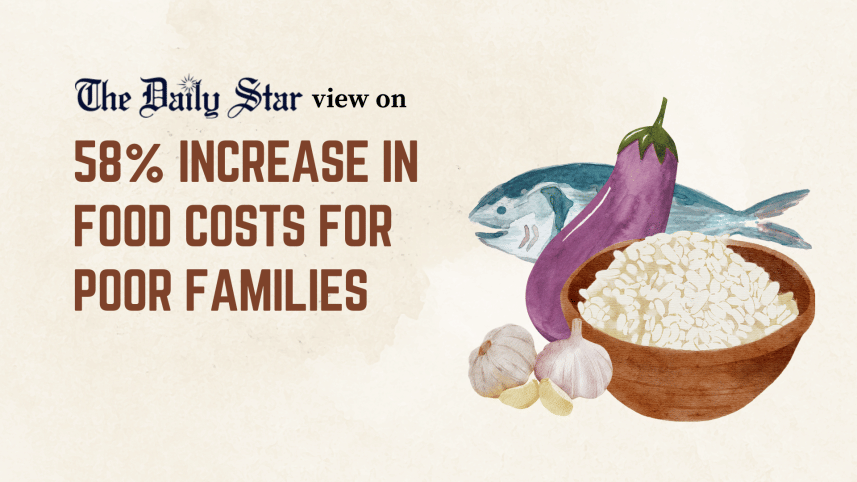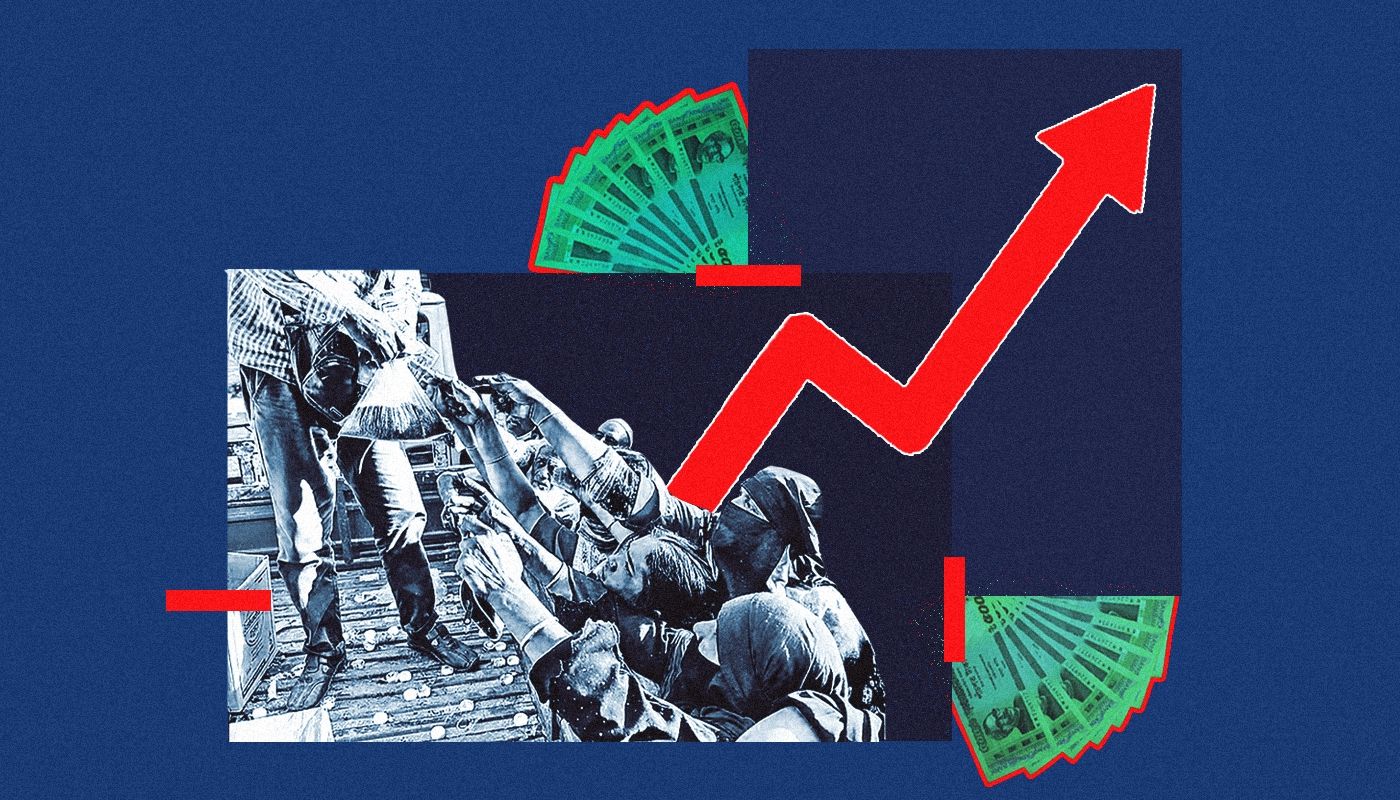Even basic items are getting out of reach

Despite the government's repeated declarations of tackling food insecurity, citizens have not felt any relief from the burn of rising food prices. According to a report of the UN World Food Programme (WFP), in 2022, the cost of buying food for people living below the poverty line was Tk 1,851 per capita per month. Due to rampant food inflation, the amount increased to Tk 2,923—a staggering 58 percent rise—in February 2024. This illustrates that the authorities' actions are simply not bearing fruit, with people continuing to struggle for the most basic necessity—a meal.
Over the last two years, inflation has hovered around 10 percent, leading to basic food items such as rice, flour, meat and vegetables getting increasingly expensive. According to another WFP report, 17 percent of people were facing food insecurity in February, 68 percent reduced their expenses to make ends meet, 43 percent were borrowing food, and 22 percent reduced medical expenses. After taking office, the new government decided to make coordinated efforts to curb inflation, and yet, food inflation was 10.22 percent last month.
Experts suggest that despite improvements in the supply chain, a group of influentials are destabilising the market. Instead of tackling this group, the government has been busy fixing prices of produce, which historically has not worked. When the source of the problem is right in front of them, why are authorities still latching on to ineffective methods? Time and again, questions have been raised about the identities of these influentials and whether the administration is feigning ignorance due to the power they hold. It's time for the government to address these questions and root out the perpetrators—immediately.
Bangladesh has been affected by a number of global events that led to depreciation of the taka, dwindling foreign exchange reserves, etc. However, while the world has been recovering, our country continues to struggle. This is evident by the fact that, despite the price of wheat continuously declining over the past six months, the local price has not fallen. All of this is nothing but the result of policy failure.
The government must now formulate a robust plan of action, which must address import issues, market manipulation, and valuation of currency. Additionally, it must bring more vulnerable people under social safety net programmes in the next fiscal year, and increase the allowances through higher budget allocation. Ad hoc and ineffective measures like price-fixing and sporadic raids cannot address the looming crisis of food insecurity among a significant portion of our population.



 For all latest news, follow The Daily Star's Google News channel.
For all latest news, follow The Daily Star's Google News channel. 

Comments